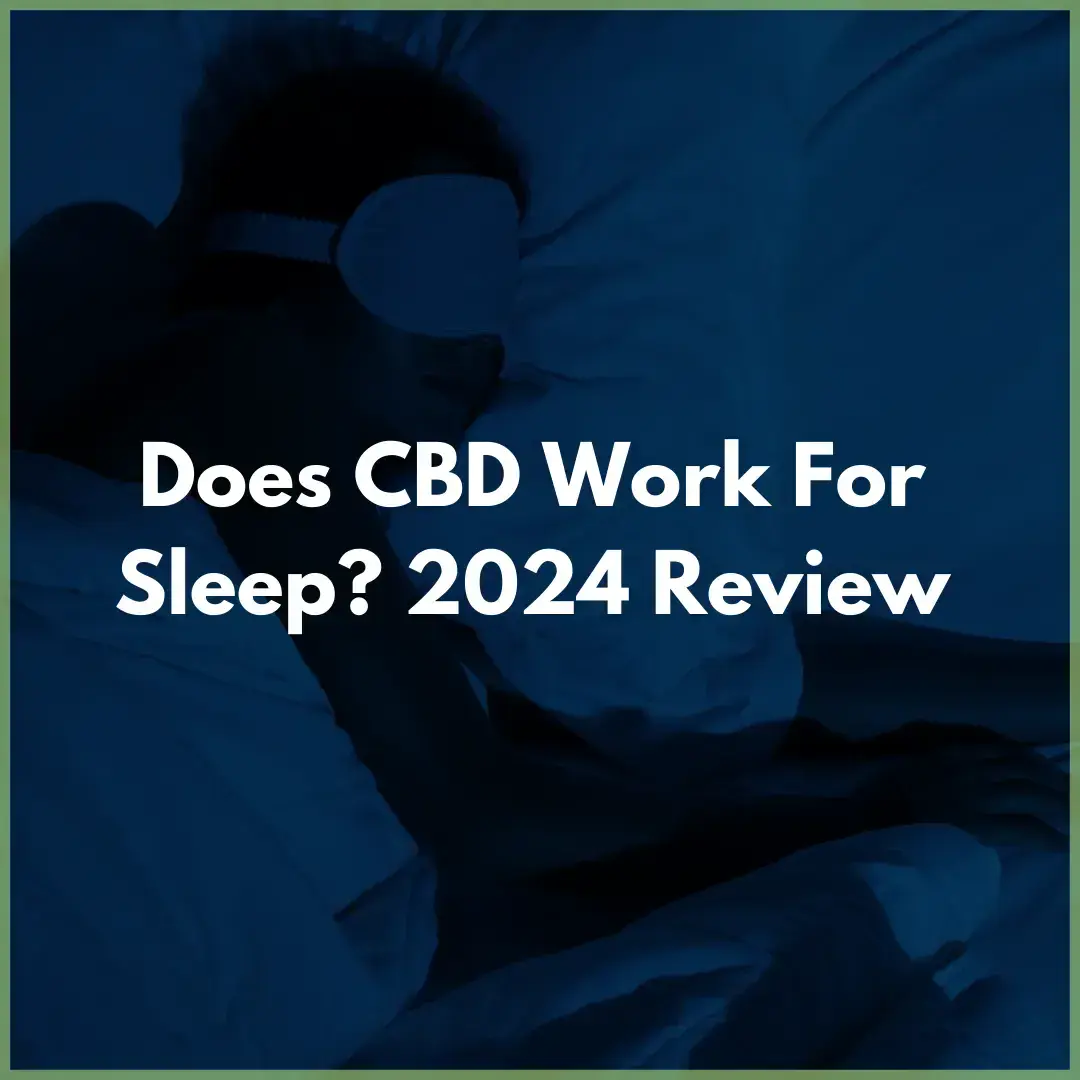
Having trouble sleeping and considering CBD for sleep? This 2024 review aims to find out!
We’ll look at the evidence, give you tips on choosing the right CBD products and consider dosages and safety to help you get a good night’s rest.
Key Points
- CBD may potentially help with sleep by reducing cortisol and anxiety, and shows potential for insomnia and sleep disturbances, but more research is needed to confirm benefits.
- Safety is important when using CBD for sleep. Be aware of interactions with medications and consult with healthcare professionals before use.
How CBD Works for Sleep
When it comes to sleep, CBD (Cannabidiol), derived from the cannabis plant, is a popular talking point and is believed to help people sleep by reducing cortisol and relaxing the nervous system.
But some studies show no sustained sleep score improvement, and others show a rapid and sustained decrease in anxiety scores.
So what does that mean? It means CBD could potentially help with sleep by addressing the factors that affect sleep.
Insomnia, a major sleep disorder, can be triggered by physical pain, anxiety and posttraumatic stress disorder. These are areas where CBD might help.
In a sample of 103 adult patients, 67% experienced improved sleep scores within the first month of CBD treatment. Indicating that CBD could be useful for those with sleep disorders.
The Science of CBD and Sleep
So how does CBD affect sleep? The science behind CBD’s sleep is still an area of ongoing research.
Some studies point to high doses of CBD increasing sleep duration. CBD may inhibit cortisol release at night and help with relaxation and sleep for those with insomnia.
But it’s not just about sleep duration; sleep quality matters too.
In a consumer trial, a majority of participants reported improved sleep quality, faster sleep onset and deeper sleep after using CBD.
But as good as those results are, it’s important to note that the exact mechanisms by which CBD affects sleep quality are not yet fully understood.
While some studies show promise, the claims for CBD as a sleep aid are not yet proven. So we need more formal research to determine CBD’s effectiveness and optimal dosing for sleep.
CBD and Anxiety-Related Sleep Disturbances
Beyond sleep issues, CBD may help with anxiety-related disorders, especially for people with sleep disturbances.
CBD may have a calming effect on the nervous system, which could be used to treat anxiety and sleep disorders.
Anecdotal evidence suggests CBD’s calming effect could make a difference. Customers have reported positive results with CBD sleep products – waking up feeling rested and less anxious at night.
These testimonials suggest CBD’s calming effect could be useful for those whose sleep is affected by anxiety. But we always need to bear in mind that the placebo effect could be involved in some cases.
Choosing the Right CBD Product for Sleep
With the wide range of products available, choosing the right CBD product for sleep can be tricky
CBD comes in various forms such as full spectrum cannabidiol oils, capsules and CBD gummies.
But how do you choose the best product for you?
The effectiveness of CBD products for sleep may vary based on the product type and individual factors such as body weight and the specific type of sleep disturbances.
UK CBD oils or tinctures should be taken by placing drops under the tongue and holding for at least one minute before swallowing, which allows for mucosal absorption.
Products such as transdermal cannabidiol patches allow CBD to be absorbed through the skin 24/7, so they could be an interesting option when it comes to sleep.
Taking CBD with food, especially with a high-fat meal, can enhance CBD absorption and duration, which may help when it comes to sleep.
Finding Your CBD Dosage for Sleep
Determining the right CBD dosage for relaxation and sleep is important for optimal results. Typical CBD dosages for sleep are:
- 10 mg
- 25 mg
- 50 mg
- 100 mg
- 175 mg
Remember to consider the per-serving concentration, as total product CBD content may not reflect individual dosage needs. Also, the Food Standards Agency does not recommend more than 70 mg of CBD per day.
Starting with a 10 milligram sublingual dose of CBD oil, one to two hours before bedtime, may potentially help with relaxation and a good night’s sleep.
From there, you can increase the dosage until you get the desired sleep-enhancing effect following a ‘low and slow’ approach.
Safety Considerations When Using CBD for Sleep
While the benefits of CBD for sleep look promising, it’s important to consider safety.
Here are the key points to remember:
- CBD can make you more sedated and tired when used with medications or substances that cause drowsiness.
- CBD may interact with herbal supplements, so be aware of potential interactions.
- CBD can affect the efficacy of other drugs by changing the levels of the drug in the body, which may decrease the effectiveness of the medication or increase side effects.
As with any new supplement, consult with a healthcare professional before use. Especially if you’re taking medications with a grapefruit warning. And only buy cannabidiol oil that is tested for potency and contaminants.
Conclusion
In summary, CBD looks promising as a natural sleep aid by helping to support indirect factors that can affect sleep quality and duration. However, further research is needed to substantiate CBD sleep claims.
Frequently Asked Questions
CBD may potentially help with sleep by reducing cortisol levels and anxiety both of which can contribute to better sleep.
CBD products for sleep are available in oils, capsules and gummies, each with different application methods and ingredient profiles. Choose the one that suits you best.
When using CBD for sleep, make sure to check the product’s purity and CBD content and consult with a healthcare professional if you have pre-existing health conditions or are taking other medications. Always prioritise safety and seek professional advice.
Start with 10mg and go up until you get the sleep-enhancing effect following a ‘low and slow’ approach.
Yes, CBD can be combined with lavender, chamomile or magnesium.

